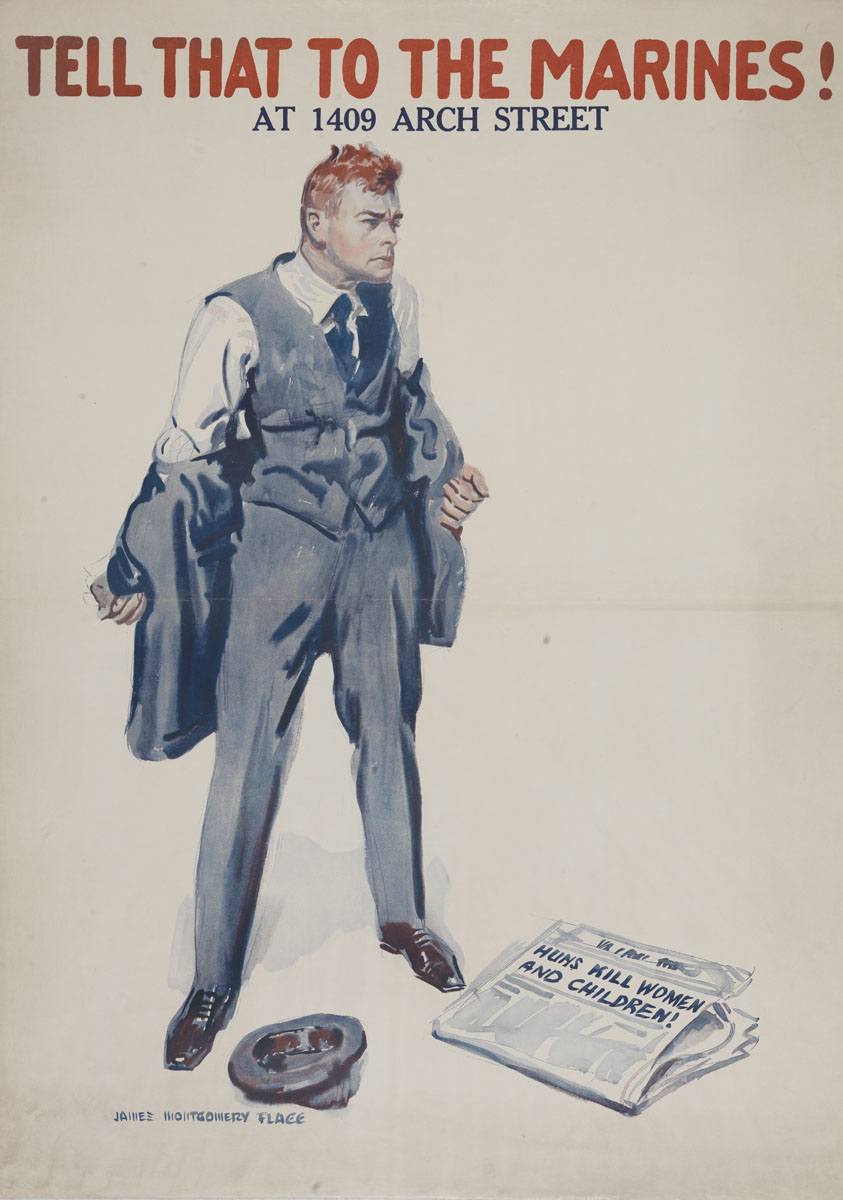Libraries in the War
Section 1
The American Library Association (A.L.A.) and libraries around the country, including in Philadelphia, played a vital role in supporting soldiers and bolstering the war effort both here and abroad. Libraries held book collection drives for soldiers; hung posters on their walls encouraging military enlistment, food and fuel conservation, and the purchase of war bonds; and relaxed their book borrowing policies. The Free Library of Philadelphia, for example, did not require soldiers to have library cards or to pay overdue fines. Many libraries, including the Library Company, bought war bonds. How involved libraries should be in wartime politics, however, was not always clear. While the Free Library removed from its shelves material deemed “injurious to the American Cause,” the Library Company does not seem to have acted upon a similar proposal suggested by a shareholder. Nonetheless, the Library Company did not shy away from entering the wartime political arena.
Library Company shareholder and Philadelphia attorney J. Percy Keating proposed that the Library send a resolution to President Woodrow Wilson protesting the deportation to Germany of Belgium civilians to be used as forced labor. The Board passed the resolution and then sought support for the measure from forty peer institutions around the country. While other libraries including the Detroit Public Library, the Enoch Pratt Free Library, and the St. Louis Public Library responded with expressions of sympathy and even outrage at the events transpiring in Europe, the Library Company’s minutes did not record any other board willing to take a stand on the issue. Reproductions courtesy of the Burton Historical Collection, Detroit Public Library.
Theodore Wesley Koch. Books in the War: The Romance of Library War Service (Boston and New York, 1919).
The books, newspapers, and magazines distributed by the A.L.A. provided a welcome distraction to soldiers traveling across the Atlantic, fighting at the front, and recovering from wounds at the hospital. “Human fellowship, good books, and music are three of the best medicines and tonics in the world,” declared the author of this book.
American Library Association Library War Service poster (New York, ca. 1918). Photogravure.
In 1917, the A.L.A. (of which the Library Company was a founding member in 1876) began a campaign of raising money and collecting books to establish libraries in military camps and to provide books and magazines to soldiers serving overseas. The A.L.A.’s Library War Service adopted the motto “A Million Dollars for a Million Books for a Million Soldiers” and easily surpassed their slogan.
Your Job Back Home: A Book for Men Leaving the Service (Washington, D.C., 1919). Gift of the A.L.A. War Service.
Through both posters and publications, the A.L.A. War Service addressed the adjustment issues facing soldiers returning to civilian life. Not surprisingly, the organization advised men to take advantage of libraries to learn more about new employment opportunities and to better prepare themselves to advance in any given position. This volume offered advice on what books would help veterans succeed in fields of employment ranging from coal mining to farming to engineering.
Letter from Mary Warburton, Emergency Aid Coal Administration, to Library Company of Philadelphia, March 5, 1918.
Unusually cold temperatures and a shortage of coal made the winter of 1917-1918 a difficult one in Philadelphia, prompting the Library Company to donate coal which was then distributed to needy families. The coal shortage continued, and in December 1918 the Fuel Administration deemed the Library’s South Broad Street branch non-essential, forcing it to close until spring. The Free Library, in contrast, proudly noted in its 1918 Annual Report that “Notwithstanding the coal famine during the early part of the year, and the epidemic of influenza during the latter part, none of the library buildings were closed for a single day.”
Vic Forsythe. And They Thought We Couldn’t Fight (Philadelphia, [1919]). Color lithograph. Gift of Mrs. Freeman.
According to a note on the back of this poster, Mrs. Freeman brought this and several other posters to the Library Company, probably in the spring of 1919. As Chair of South Philadelphia’s Liberty Loan Committee, Mrs. Freeman distributed posters encouraging the public to purchase bonds for the Victory Loan drive. Corinne Keen Freeman was the wife of Library Company shareholder Dr. Walter R. Jackson Freeman and the daughter of William Williams Keen, another Library Company shareholder.
Homer. They Signal Send Books (New York, 1917). Color lithograph.
Beginning in the summer of 1917, the Free Library of Philadelphia became a regional distribution center for reading material collected for the military. Hoping to ensure that the books collected were ones soldiers actually wanted to read, the A.L.A. issued lists of favorite authors, including Jack London, Rudyard Kipling, Robert Louis Stevenson, and Arthur Conan Doyle. According to the Free Library’s 1918 Annual Report, the library sorted and distributed over 180,000 books and 190,000 magazines.
Underwood & Underwood. [James Montgomery Flagg Reproducing his Poster], August 1, 1918. National Archives photograph 165-WW 61A-33.
Artist and illustrator James Montgomery Flagg (1877-1960) designed forty-six posters for the war effort. This poster was issued with various street addresses directing potential enlistees to specific recruiting stations in their local area. In the summer of 1918 outside of the New York Public Library’s main building, Flagg painted a reproduction of his poster. The Marine Corps planned to hold recruiting rallies while he painted, and the finished work would be displayed at the library to further encourage enlistment.


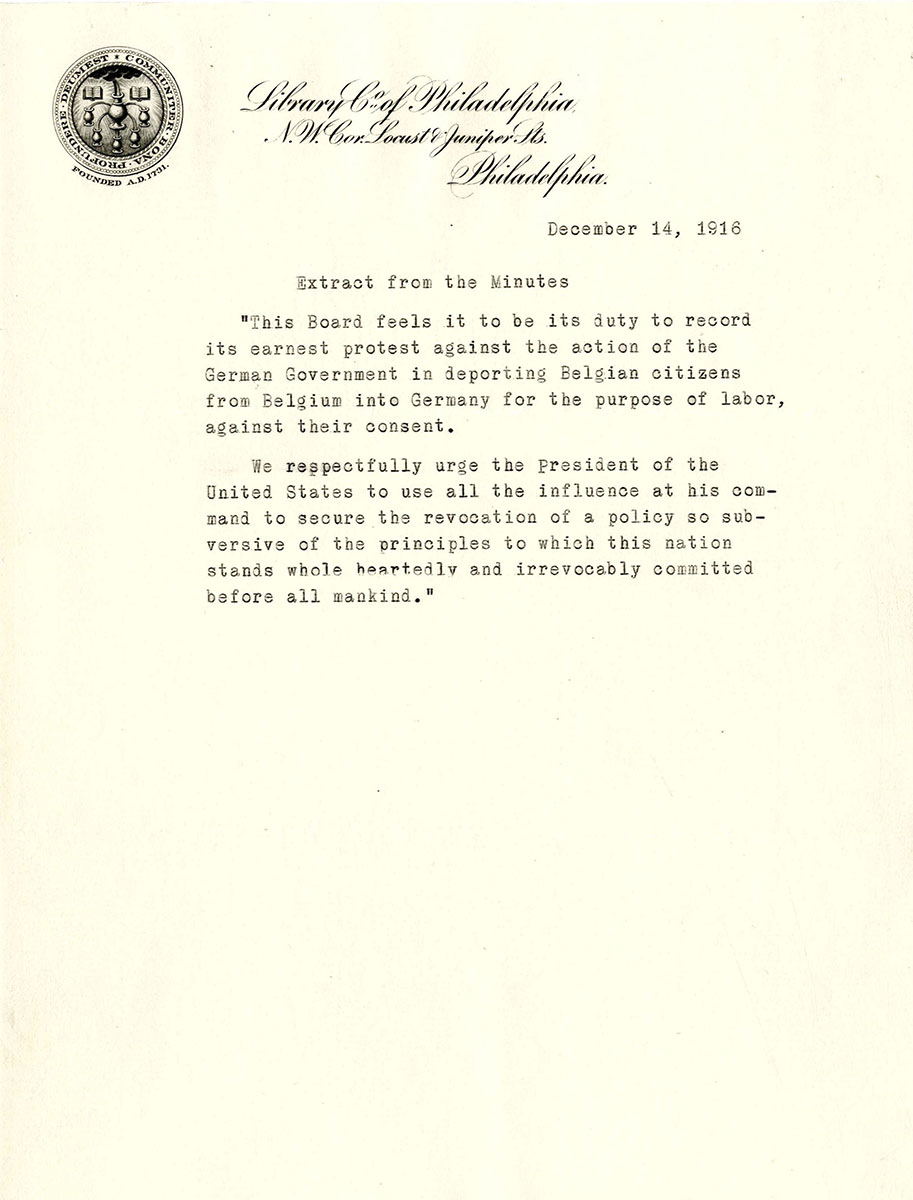
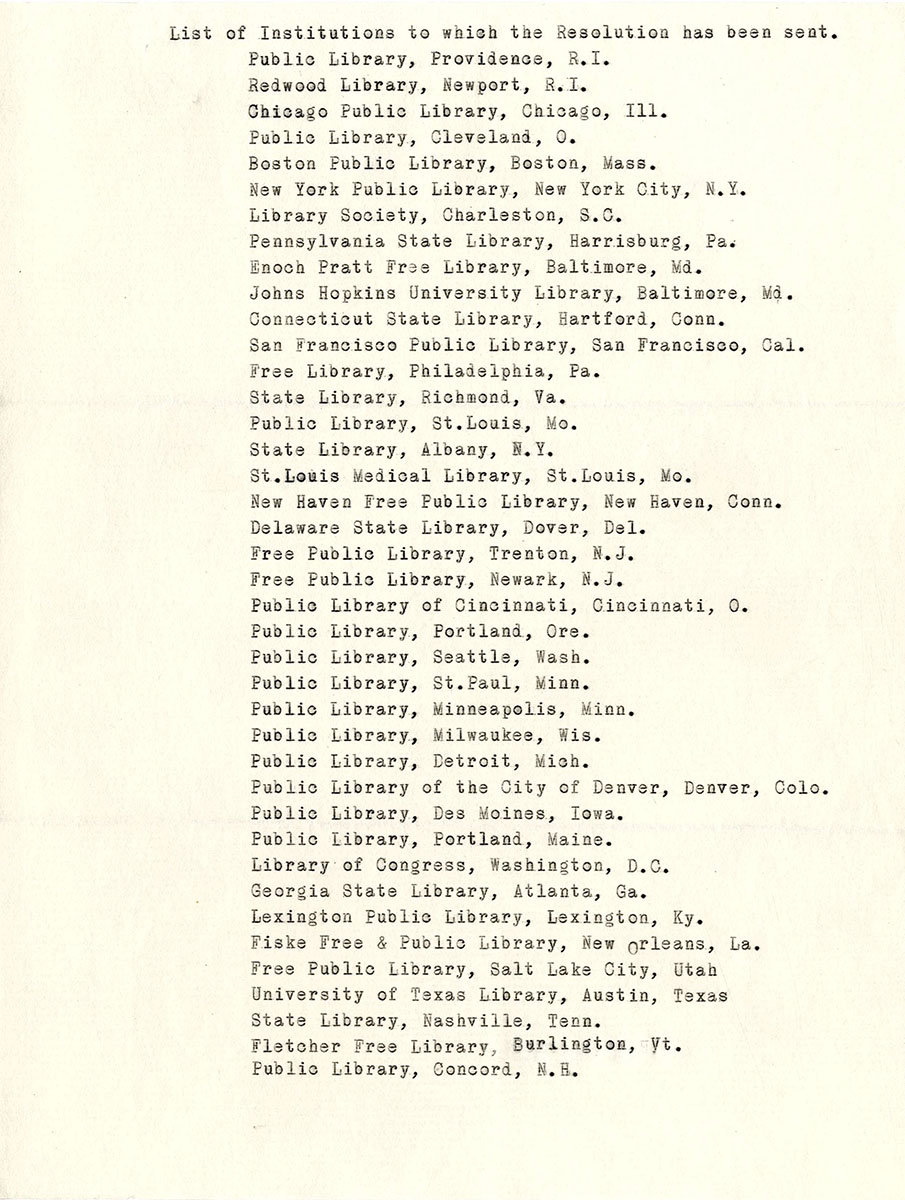
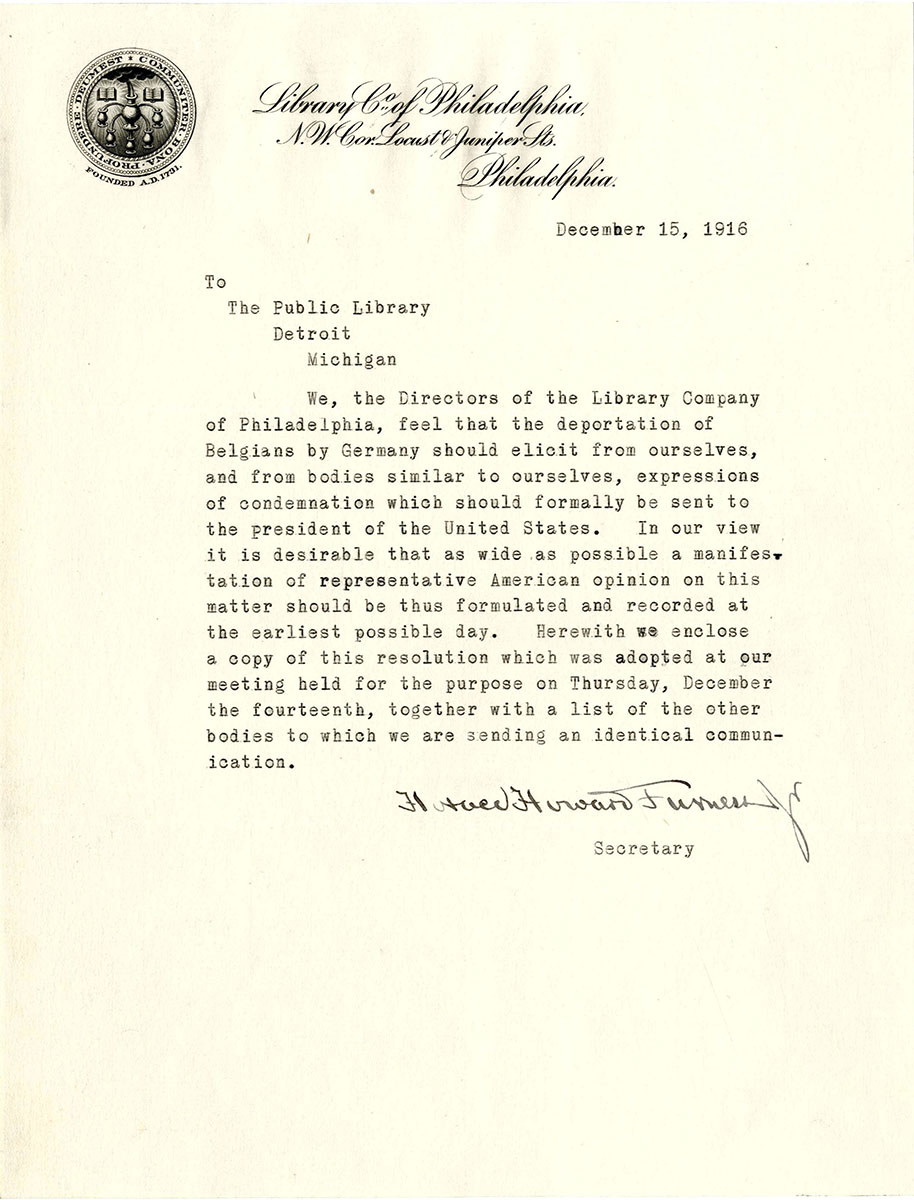
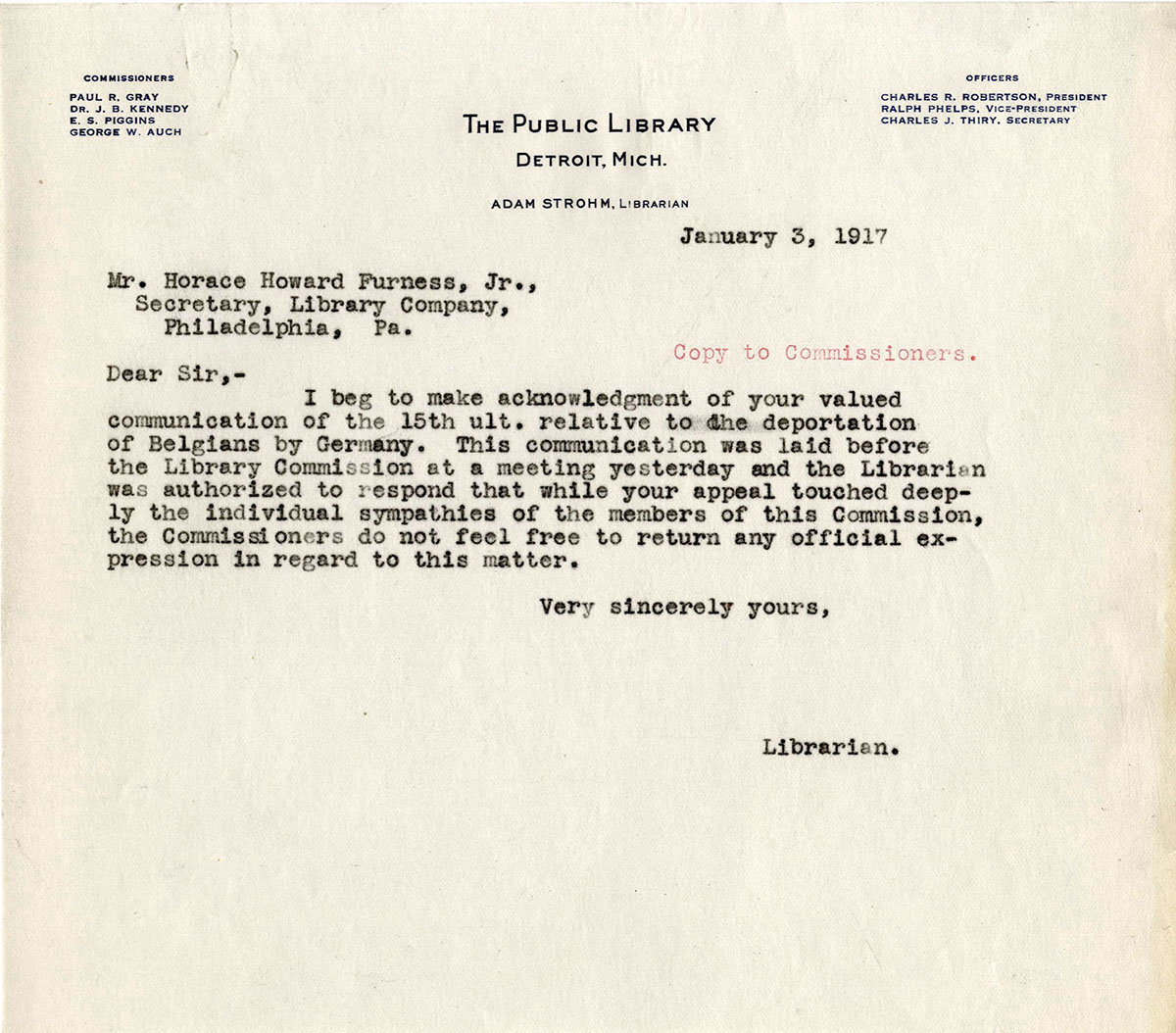
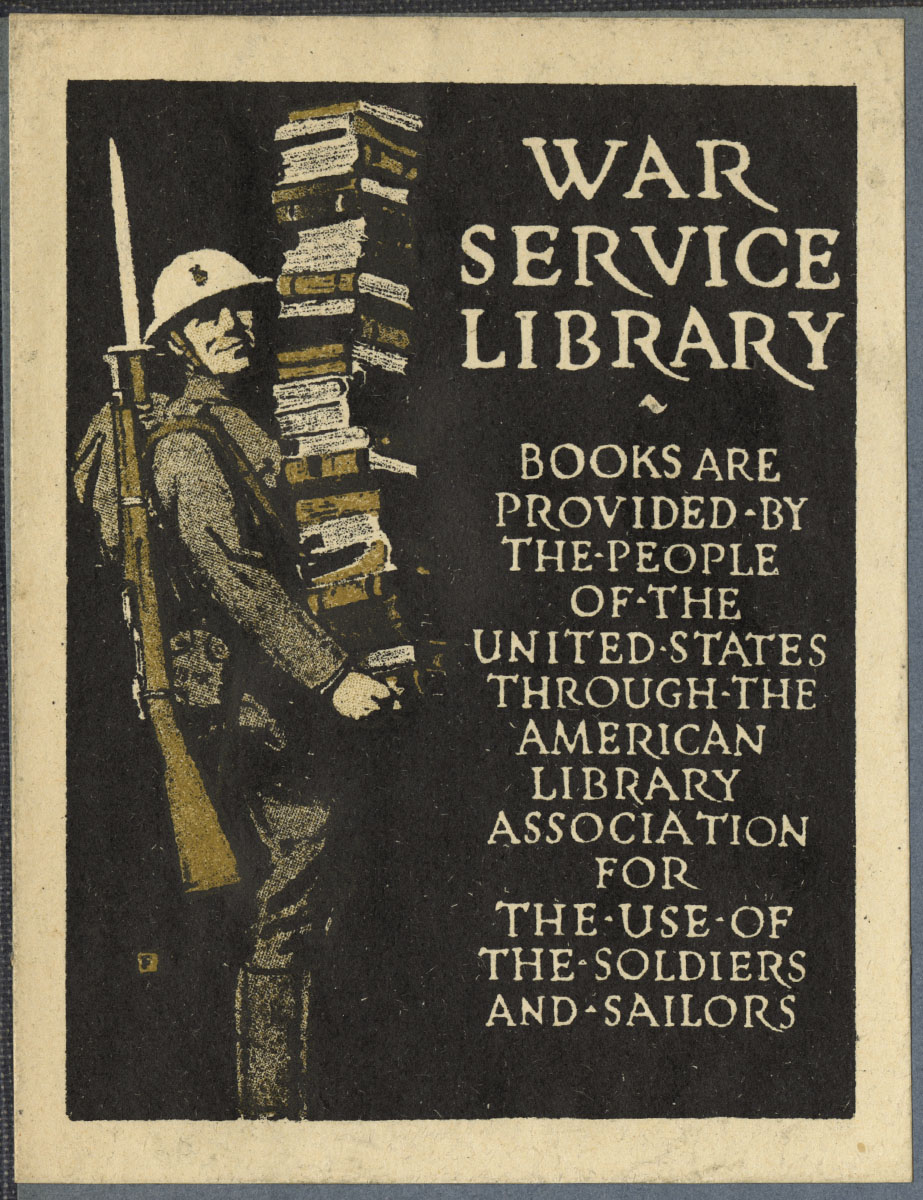
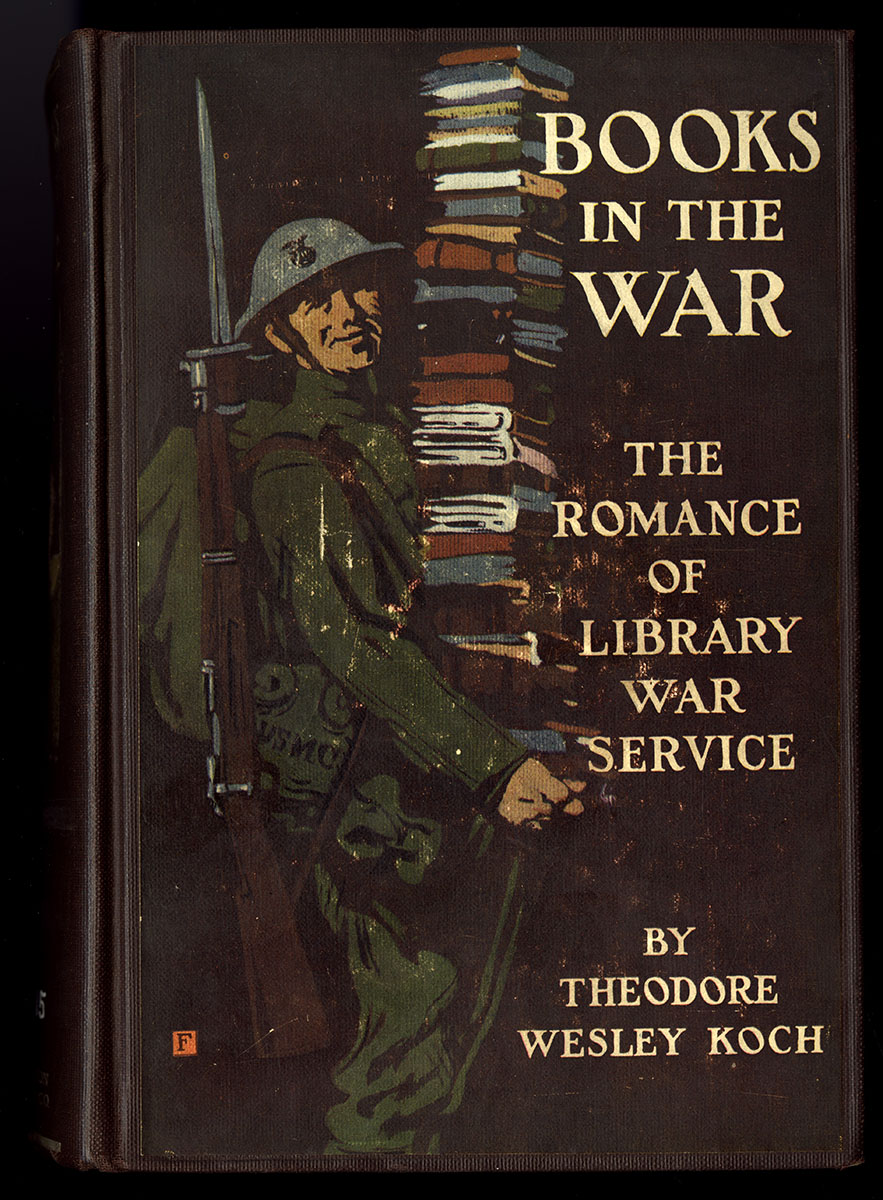
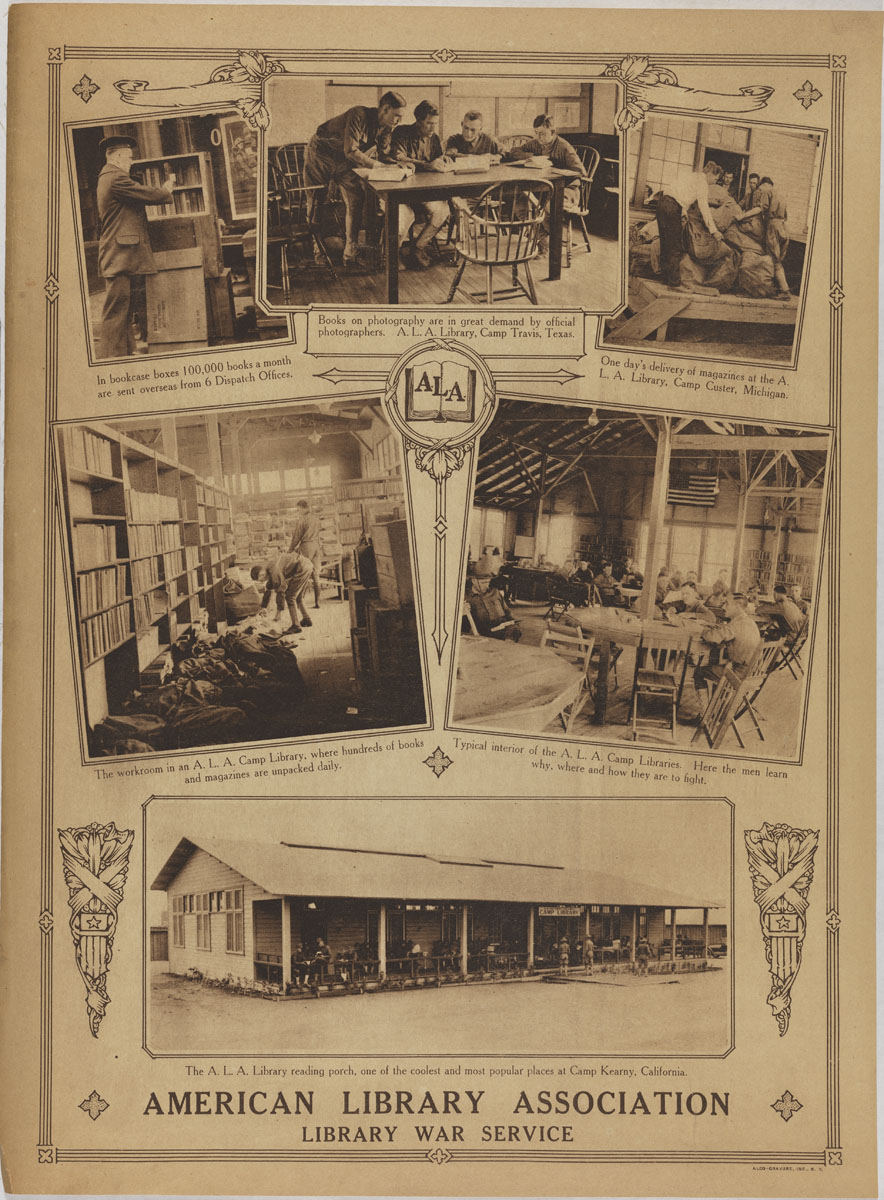
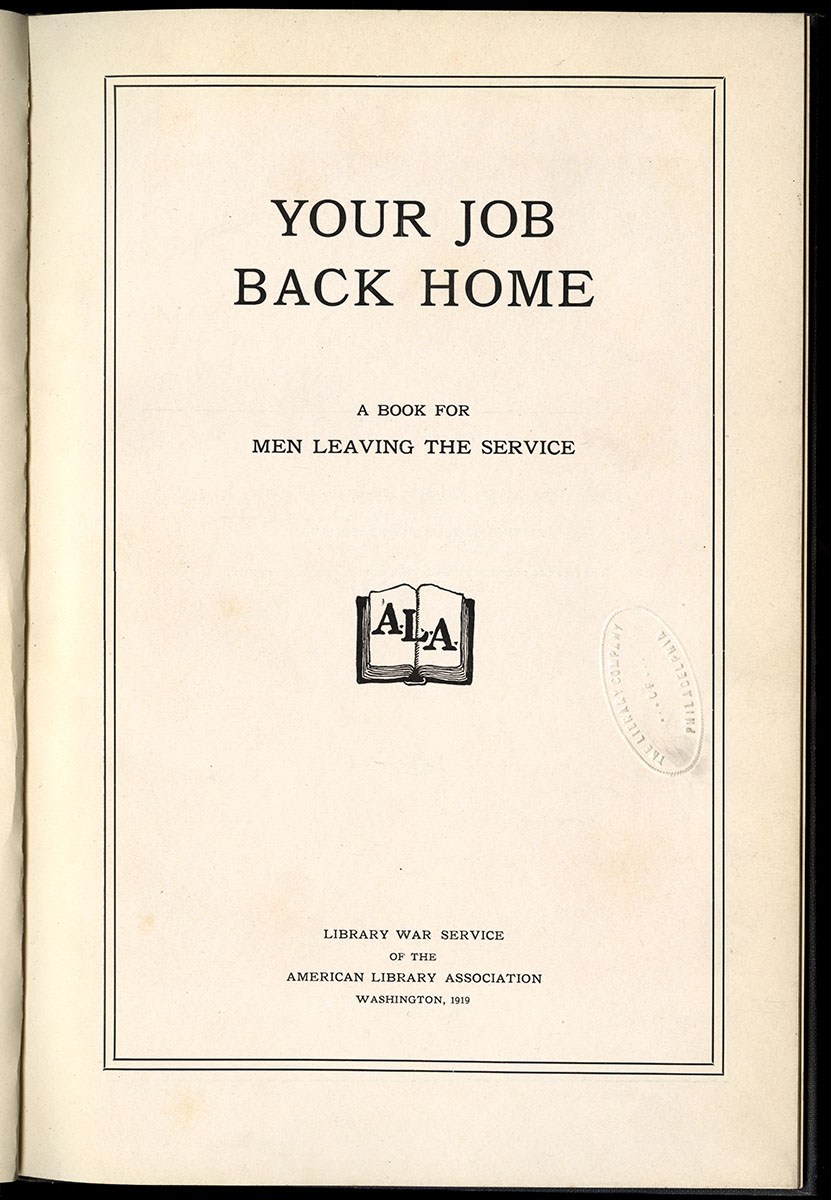
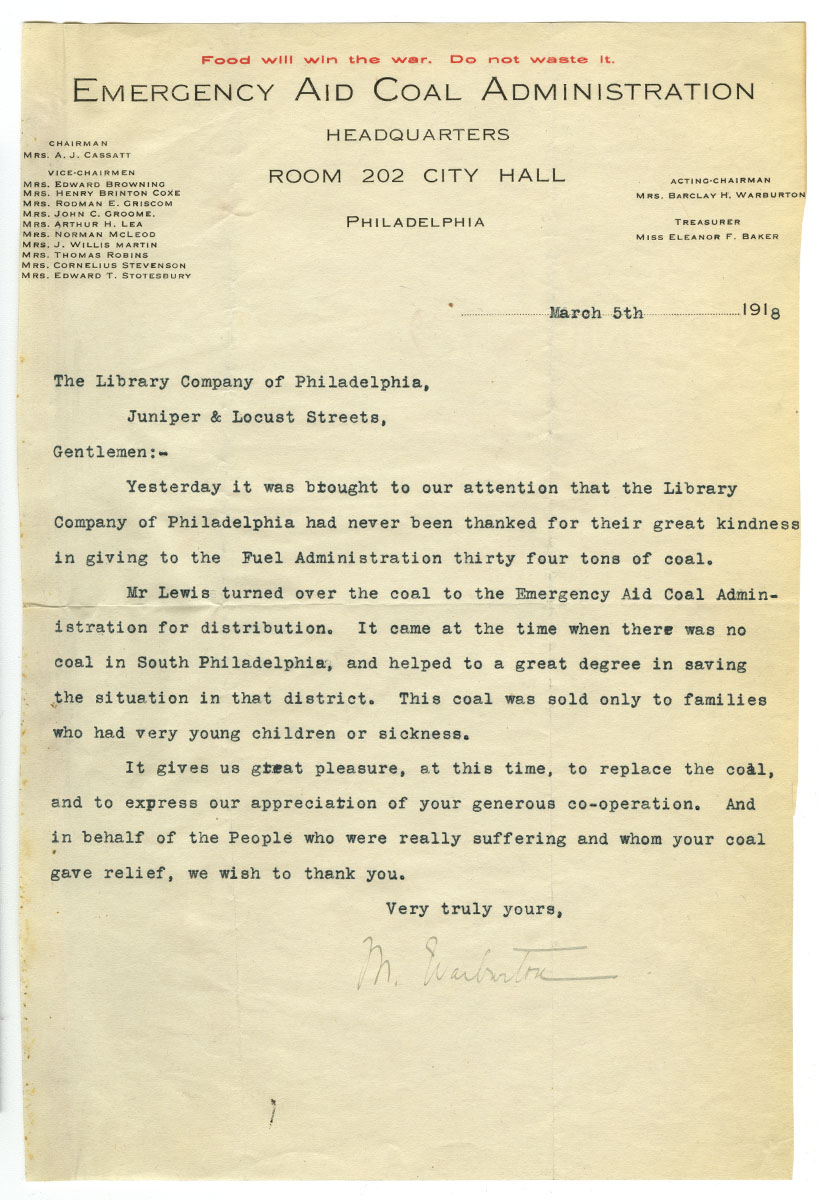
![Vic Forsythe. And They Thought We Couldn’t Fight (Philadelphia, [1919]). Color lithograph. Gift of Mrs. Freeman.](https://togetherwewin.librarycompany.org/wp-content/uploads/2017/04/1-1-p-2284-93.jpg)
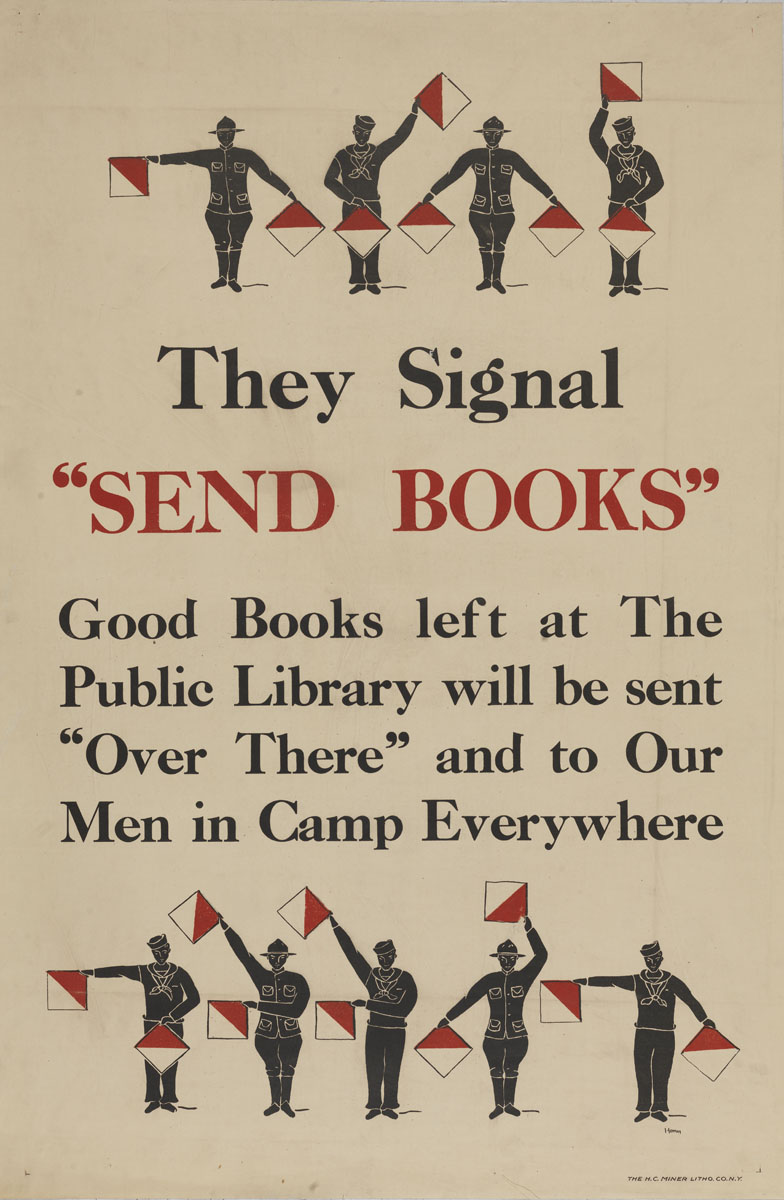
![Underwood & Underwood. [James Montgomery Flagg Reproducing his Poster], August 1, 1918. National Archives photograph 165-WW 61A-33.](https://togetherwewin.librarycompany.org/wp-content/uploads/2017/04/NationalArchives165-WW-61A-33.jpg)
